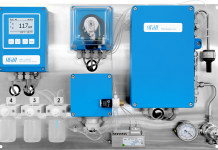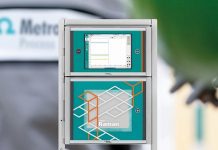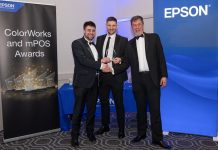Once the preserve of chemical manufacturers, product stewardship should now be a priority on the agenda in every boardroom.
From product registration to restriction, and from raw material to finished product and end-of-life, many companies are already adapting their organisations and processes to address these concerns, protect product integrity and optimise their business and markets.
Businesses need more support than ever to effectively and efficiently manage their product portfolios, supply chains and communications with different stakeholders as they respond to these demands. At the centre of product regulatory compliance within industry for over 30 years, Ramboll Environ’s role is to bring the right strategic and technical support and regulatory expertise to our clients to improve their market position and, equally, ensure continued availability of key products to keep markets functioning.
Amongst numerous short-term challenges, the REACH registration deadline of 2018 threatens to bear down quickly and dramatically, with companies in very different states of preparation. With continued efforts to clarify whether the business case for registration justifies the costs, many firms are waiting for others to take a leading role and initiate activity. However, a wait-and-see strategy may create problems down the line: there is a real risk that companies will face higher costs, less qualified advice or unacceptable delays as expert resources become more and more squeezed into 2016 and 2017. Laboratories already warn of limited availability for new studies and an inability to guarantee delivery in time for the submission deadline. By June 2018, a significant number of substances will no longer be available on the EU market: a timely and well-planned approach is needed to avoid non-compliance and supply chain failure.
REACH registration dossiers need to be technically robust, even for very low volume substances. However, insight into the regulation and associated science can help companies achieve this goal cost-effectively and with reduced use of animals. For example, Annex III offers a potential derogation from the standard set of testing requirements, where this can be adequately justified. In addition, while REACH clearly foresees use of alternative methods to avoid unnecessary testing on animals, in practice, regulators have typically rejected such methods during dossier evaluation. With no sense of irony, regulators are using these same tools to justify further requests for often complex and expensive animal testing. A thorough understanding of these methods – and experience applying them – is ever more critical to delivering robust arguments and successfully navigating the evaluation process.
While registration is causing headaches for chemical producers and importers, the phasing-out of substances via the REACH authorisation process is having the same effect for many of their customers further down the supply chain, but here the stakes can be much higher. Substances of Very High Concern that are identified for authorisation often support critical functions and performance that cannot be replaced in the short-term. In these cases, industry must prepare robust arguments demonstrating that the conditions for authorisation are met in order to continue to use these substances. Failing to do so could have devastating consequences for individual businesses, industry sectors and even society.
Having prepared one of the very first successful authorisation submissions in 2013, Ramboll Environ has been playing a key role in this process ever since, with direct involvement in half of all the applications for authorisation submitted to date. We have assisted companies using different substances in a variety of niche and not so niche applications. In each case we have worked closely with the business and other key parties to find the optimal solution, including informing policy-makers where appropriate.
As well as complying with technically complex laws and standards, businesses need to keep informed about an array of legal decisions and emerging regulations to ensure their products are ‘future-proof’. Customer pressure for safer products also requires companies to anticipate the implications of emerging public concern, science and policy. Product stewardship and REACH provide challenges, but also opportunities. As REACH-like legislation is introduced in different countries across the world, those companies that have taken stock and planned to take advantage of these opportunities are those that will thrive.
By Sue Bullock and
Mike Padgham
Ramboll Environ
www.ramboll-environ.com













